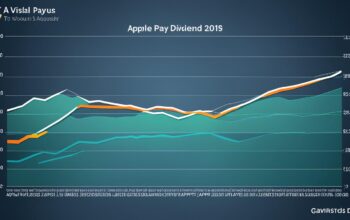Investing in artificial intelligence (AI) has become a hot topic for investors looking to capitalize on the transformative potential of this technology. With AI revolutionizing various industries and offering promising investment opportunities, understanding how to invest in AI is essential for savvy investors.
In this guide, we will explore the different strategies for investing in AI, ranging from investing in AI companies and startups to AI-focused exchange-traded funds (ETFs). We will also delve into the market impact of AI and provide valuable insights to help you navigate the complex landscape of AI investing.
Whether you are an experienced investor or just starting out, this guide will equip you with the knowledge and tools you need to make informed AI investments. By harnessing the power of AI in your investment portfolio, you can position yourself to benefit from the growth and potential of this groundbreaking technology.
Key Takeaways
- Investing in AI offers significant opportunities for growth and potential high returns.
- You can invest in AI through direct investments in AI companies or by diversifying your portfolio with AI-focused ETFs.
- When investing in AI companies, evaluate their financial health, management quality, competitive position, and growth potential.
- Investing in AI startups can be lucrative but comes with significant risks, requiring thorough research and evaluation.
- Stay informed about the latest AI trends and developments to make informed investment decisions.
Understanding AI and Its Market Impact
Artificial Intelligence (AI) has the potential to revolutionize industries by enhancing efficiency, driving innovation, and reshaping everyday experiences. With its wide range of applications, AI is comparable to the transformative influence of railroads in the 19th century and personal computers in the 1980s. By leveraging AI technologies, businesses can optimize operations, streamline processes, and gain valuable insights. This section explores the market impact of AI and its applications across various sectors.
AI’s market expansion is evident in industries such as transportation, finance, and retail. In transportation, AI-enabled systems enhance safety and efficiency through autonomous vehicles and traffic management algorithms. AI-powered chatbots and fraud detection algorithms are revolutionizing the finance sector by providing personalized customer experiences and minimizing risks. In the retail industry, AI applications include demand forecasting, inventory management, and personalized shopping recommendations.
AI’s influence is fueled by machine learning, a sub-field of AI that enables systems to learn from data and improve performance without being explicitly programmed. Machine learning algorithms are capable of handling complex patterns, making predictions, and automating decision-making processes. This technology is instrumental in the development and application of AI solutions, enabling advancements in natural language processing, computer vision, and predictive analytics.
To illustrate the market impact of AI, consider the following examples:
“AI in healthcare is projected to reach a market value of $31.3 billion by 2025, driven by the need for improved diagnostics, personalized treatments, and efficient patient care.”
“The global AI in retail market is expected to reach $23.6 billion by 2025, driven by the increasing adoption of AI technologies to enhance customer experiences and optimize supply chain management.”
As AI technologies continue to evolve, the market impact will expand across industries, offering new opportunities and transforming business operations. Understanding AI’s potential and market influence is crucial for investors seeking to capitalize on the growth of this transformative technology.
Key Takeaways:
- AI has the potential to significantly impact various industries through enhanced efficiency, innovation, and reshaping everyday experiences.
- Machine learning, a sub-field of AI, plays a crucial role in the development and application of AI technologies.
- AI applications are visible across sectors such as transportation, finance, and retail, revolutionizing processes and customer experiences.
- Market forecasts project substantial growth in AI-driven industries, creating investment opportunities for forward-thinking investors.
| Industry | Market Value (2025) |
|---|---|
| Healthcare | $31.3 billion |
| Retail | $23.6 billion |
In the next section, we will explore the strategies for investing in artificial intelligence, including direct investments in AI companies and diversifying portfolios with AI-focused exchange-traded funds (ETFs).
How to Invest in Artificial Intelligence
Investing in artificial intelligence (AI) presents intriguing opportunities for investors seeking to align their portfolios with emerging technologies and disruptive innovation. There are two primary avenues for investing in AI: direct investments in AI companies and diversification through AI-focused exchange-traded funds (ETFs). Let’s explore both options in detail to help you make informed investment decisions.
Investing in AI Companies
Investing directly in AI companies allows you to capitalize on the potential growth and profitability of individual businesses at the forefront of AI innovation. When evaluating AI companies for investment, consider the following factors:
- Financial Health: Assess the financial stability and performance of the company, including revenue growth, profit margins, and cash flow.
- Management Quality: Evaluate the expertise and track record of the management team in executing their AI strategies and driving business growth.
- Competitive Position: Analyze the company’s competitive advantage in the AI market, such as proprietary technology, intellectual property, or strategic partnerships.
- Growth Potential: Look for AI companies operating in large addressable markets with the potential to disrupt existing industries and create new opportunities.
Promising AI stocks typically demonstrate a combination of these factors and have the potential to deliver significant returns. Conduct thorough research, analyze financial statements, and stay updated on industry trends to make informed investment choices.
Diversifying with AI ETFs
For investors looking to spread their risk and gain broad exposure to the AI sector, investing in AI-focused exchange-traded funds (ETFs) is a viable option. AI ETFs provide diversified portfolios of AI-related companies across different industries and regions.
By investing in AI ETFs, you can benefit from professional portfolio management, as these funds are managed by experts with in-depth knowledge of the AI landscape. They have the ability to select and rebalance a diverse range of AI companies, providing you with exposure to established players as well as emerging startups.
Moreover, investing in AI ETFs helps mitigate the risks associated with individual stocks, as the fund’s performance is not dependent on the success or failure of a single company. As the AI sector continues to evolve, AI ETFs adapt their holdings, ensuring your investment remains aligned with the latest AI trends.

| Benefits of Investing in AI Companies | Benefits of Investing in AI ETFs |
|---|---|
|
|
Before making any investment decisions, carefully consider your risk tolerance, investment goals, and time horizon. Combining direct investments in AI companies with diversification through AI ETFs can provide a well-rounded AI investment portfolio, offering both growth potential and risk management.
Investing in Artificial Intelligence Startups
Investing in AI startups presents a unique opportunity for investors seeking high returns in the dynamic world of artificial intelligence. However, it is crucial to understand the risks involved and undertake thorough evaluation before making any investment decisions.
Evaluating AI Startups
When evaluating AI startups, it’s essential to consider multiple factors that can determine their potential for success. Here are key areas to focus on:
- AI Market Potential: Assess the market potential for the startup’s product or service. Analyze the current demand for AI solutions in that particular industry and evaluate how the startup’s offerings differentiate from competitors.
- Technology and Innovation: Evaluate the startup’s technology infrastructure and its innovative approach. Look for startups that leverage cutting-edge AI technologies and have the potential to disrupt the market with their unique offerings.
- Management Team: Assess the expertise and experience of the startup’s management team. A strong team with a deep understanding of AI and relevant industry knowledge can significantly impact the success of the startup.
- Financial Viability: Analyze the financial health of the startup, including its revenue model, funding sources, and growth projections. Look for startups that have a sustainable business model and exhibit positive growth potential.
Remember, investing in AI startups carries inherent risks associated with early-stage ventures. Thorough research and evaluation will help mitigate these risks and increase the chances of a successful investment.
“AI startups have the potential to revolutionize industries and provide investors with significant returns. However, it’s crucial to carefully evaluate their technology, market potential, and management team.”
AI Startup Market Potential
The market potential for AI startups is driven by the increasing demand for AI-powered solutions across multiple sectors. According to market research, the global AI market is projected to reach $190.61 billion by 2025, growing at a CAGR of 36.62% from 2019 to 2025.
| Industry | Market Size | Key Drivers |
|---|---|---|
| Healthcare | $14.2 billion (2020) | Improving patient outcomes, cost reduction, and enhanced diagnosis |
| Retail | $7.9 billion (2020) | Personalized customer experiences, demand forecasting, and supply chain optimization |
| Finance | $12.47 billion (2020) | Automated trading, fraud detection, and risk assessment |
| Transportation | $1.25 billion (2020) | Autonomous vehicles, route optimization, and demand prediction |
Table: Market potential for AI startups across key industries. Data represents market size in 2020 and notable applications driving growth.
Investors can capitalize on this market potential by identifying AI startups with compelling offerings that align with the demands of specific industries.
As the AI startup ecosystem continues to evolve, strategic investments in promising startups can provide investors with a front-row seat to the future. However, it is crucial to conduct thorough due diligence, stay updated with market trends, and carefully evaluate each opportunity before making any investment decisions.
Conclusion
Investing in AI presents significant opportunities for investors looking for long-term growth and high potential returns. With the projected growth and potential of the AI market, it is clear that AI investment prospects are promising. Additionally, the increasing investments in AI technologies and the rising popularity of AI-focused ETFs further support the potential for substantial returns.
However, it is crucial for investors to be aware of the risks associated with AI investing. The AI market can be volatile, and AI stocks might be susceptible to hype cycles. It is essential to approach AI investments with caution and conduct thorough research and evaluation to mitigate risks.
To navigate the AI investment landscape successfully, it is recommended that investors carefully evaluate AI companies and startups. Assessing factors such as financial health, management quality, competitive position, and growth potential can help identify promising AI stocks. Diversifying investment portfolios with AI-focused ETFs is also a strategy to gain broad exposure to the AI sector while minimizing risks associated with individual stocks.
Furthermore, staying informed about the latest AI trends and advancements is crucial. The future of AI investing is promising, with continuous innovations and advancements driving growth. By keeping up to date with industry developments and making informed investment decisions, investors can seize the AI investment opportunities that lie ahead and potentially capitalize on the growth of this transformative technology.
FAQ
What is the best strategy for investing in AI?
The best strategy for investing in AI is to diversify your portfolio by investing in a combination of AI companies and AI-focused ETFs. This allows you to capture the potential growth of individual AI stocks while minimizing risks.
How do I evaluate AI companies before investing?
Before investing in AI companies, it is important to evaluate their financial health, management quality, competitive position, and growth potential. Look for companies with a sizable addressable market, a competitive advantage, and a strong management team.
What are the risks associated with investing in AI startups?
Investing in AI startups can be lucrative but also comes with significant risks. It is essential to thoroughly research and evaluate AI startups, including understanding the AI market, assessing the startup’s technology and team, and evaluating the market potential for their product or service.
How can I gain exposure to the AI sector without investing in individual stocks?
To gain exposure to the AI sector without investing in individual stocks, you can consider investing in AI-focused ETFs. These funds provide broad exposure to the AI industry and help mitigate risks associated with individual stocks.
What are the potential returns of investing in AI?
Investing in AI presents significant opportunities for high returns, given the projected growth and potential of the AI market. Increasing investments in AI technologies and the rising popularity of AI-focused ETFs reflect this potential. However, it is important to understand the risks associated with AI investing, including market volatility and hype cycles.







